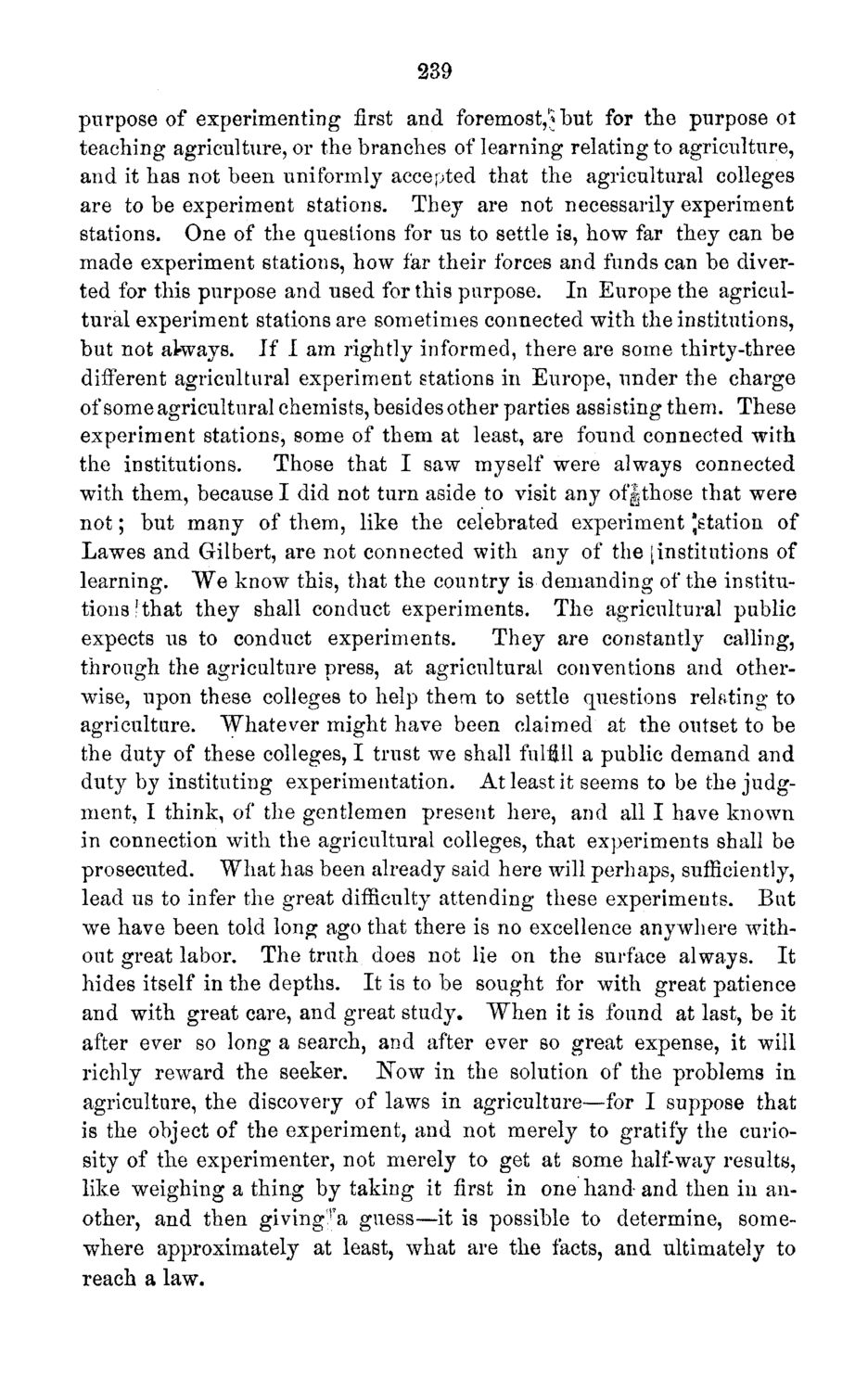| |
| |
Caption: Board of Trustees Minutes - 1871
This is a reduced-resolution page image for fast online browsing.

EXTRACTED TEXT FROM PAGE:
239 purpose of experimenting first and foremost,* but for the purpose ot teaching agriculture, or the branches of learning relating to agriculture, and it has not been uniformly accepted that the agricultural colleges are to be experiment stations. They are not necessarily experiment stations. One of the questions for us to settle is, how far they can be made experiment stations, how far their forces and funds can be diverted for this purpose and used for this purpose. In Europe the agricultural experiment stations are sometimes connected with the institutions, but not always. If I am rightly informed, there are some thirty-three different agricultural experiment stations in Europe, under the charge of some agricultural chemists, besides other parties assisting them. These experiment stations, some of them at least, are found connected with the institutions. Those that I saw myself were always connected with them, because I did not turn aside to visit any ofjthose that were not; but many of them, like the celebrated experiment Jstation of Lawes and Gilbert, are not connected with any of the [institutions of learning. "We know this, that the country is demanding of the institutions! that they shall conduct experiments. The agricultural public expects us to conduct experiments. They are constantly calling, through the agriculture press, at agricultural conventions and otherwise, upon these colleges to help them, to settle questions relating to agriculture. Whatever might have been claimed at the outset to be the duty of these colleges, I trust we shall fulfill a public demand and duty by instituting experimentation. At least it seems to be the judgment, I think, of the gentlemen present here, and all I have known in connection with the agricultural colleges, that experiments shall be prosecuted. What has been already said here will perhaps, sufficiently, lead us to infer the great difficulty attending these experiments. But we have been told long ago that there is no excellence anywhere without great labor. The truth does not lie on the surface always. It hides itself in the depths. It is to be sought for with great patience and with great care, and great study. When it is found at last, be it after ever so long a search, and after ever so great expense, it will richly reward the seeker. ISTow in the solution of the problems in agriculture, the discovery of laws in agriculture—for I suppose that is the object of the experiment, and not merely to gratify the curiosity of the experimenter, not merely to get at some half-way results, like weighing a thing by taking it first in one hand and then in another, and then givingTa guess—it is possible to determine, somewhere approximately at least, what are the facts, and ultimately to reach a law.
| |